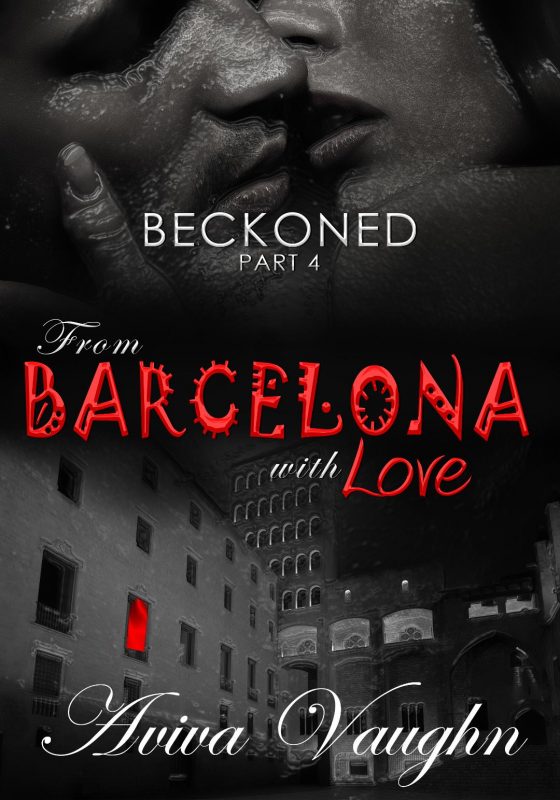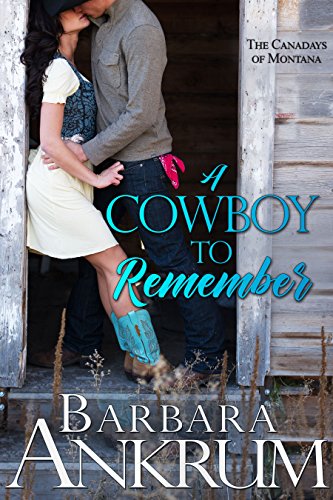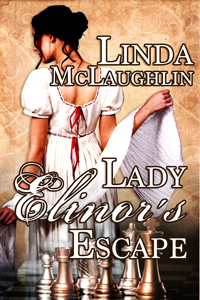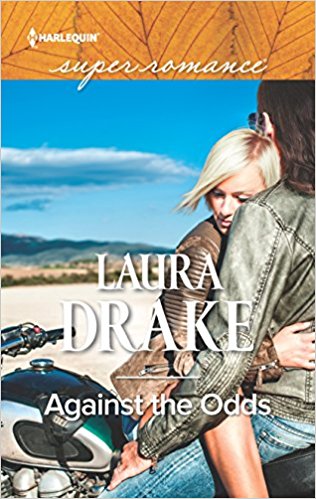Featured Author of the Month: Rebecca Forster
August 24, 2017 by marianne h donley in category Featured Author of the Month tagged as Finn O'Brien Thrillers, Rebecca Forster, The Bailey Devlin Series, The Witness Series
Rebecca Forster marketed a world-class spa when it was still called a gym, did business in China before there were western toilettes at the Great Wall and mucked around with the sheep to find out exactly how her client’s fine wool clothing was manufactured. Then Rebecca wrote her first book and found her passion.
Now, over twenty-five books later, she is a USA Today and Amazon bestselling author and writes full-time, penning thrillers that explore the emotional impact of the justice system.
She earned her B.A. at Loyola, Chicago and her MBA at Loyola, Los Angeles. Rebecca has taught the Business of Creativity at University of California Long Beach Writers Certificate Program, UCLA and UC Irvine extension. Married to a Los Angeles Superior Court judge, she is the mother of two grown sons and spends her free time traveling, sewing, and playing tennis.
On A Slice of Orange, Rebecca’s column The Write Life appears on the 15th of every month, and as a part of The Extra Squeeze Team, the last day of every month. A few of her books are listed below.
How do you prepare for a new book release? How important are blog tours?
June 30, 2017 by The Extra Squeeze in category The Extra Squeeze by The Extra Squeeze Team tagged as blog tours, HO Charles, Jenny Jensen, new book releases, Rebecca Forster, Robin Blakely, The Extra Squeeze Team
Ever wonder what industry professionals think about the issues that can really impact our careers? Each month The Extra Squeeze features a fresh topic related to books and publishing.
Amazon mover and shaker Rebecca Forster and her handpicked team of book professionals offer frank responses from the POV of each of their specialties — Writing, Editing, PR/Biz Development, and Cover Design.
How do you prepare for a new book release? How important are blog tours?

Rebecca Forster
USA Today Bestselling author of 35 books, including the Witness series and the new Finn O’Brien series.
When I published my first book over thirty years ago I assumed the publisher would have all sorts of glittery, fantastic promotions planned that would shoot me to literary stardom.
Not!
In those days – just like these days – the author is responsible for launching their book and establishing their brand. The good news is that now the opportunity for promotion is controllable. I maintain a new release plan that has proven manageable and effective over the course of more than thirty books.
1) Write a good book: professional, exciting, as error free as possible and packaged beautifully. All the promotion in the world will not support an inferior product.
2) Set up your pre-orders and then create excitement with a sneak peek of a few chapters on your website (don’t forget buy links at the end of these chapters).
3) Alert interested parties starting with distribution channels. Smashwords, for instance, has an alert for author’s running BookBub ads. Once they know your ad date, they will pass the information along to their bookstores, those bookstores will consider your book for further promotion. BookBub Partners has an automated per-order alert for your followers. Amazon has the same. Read the distributor’s newsletters and find out what free opportunities are there for the taking.
4) When your manuscript is ready, start submitting it for reviews (I love PRG and InD’Tale).
5) Continue to nurture and grow your social media followers and plan affordable advertising geared toward look-alike audiences. Try sites like LitRing (have loved the 4 promos I’ve done with them). Many advertising sites won’t take pre-order advertising but purchase spots for immediately after your launch while your book is new. I am not a fan of blog tours. I have only paid to do one but I couldn’t quantify the results so for me this isn’t part of my strategy.
The bottom line is this: write well, be aware of what is available, be as genre specific as possible in your target marketing and remember that the launch is the beginning and not the end of your marketing efforts for your book and your brand.

Jenny Jensen
Developmental editor who has worked for twenty plus years with new and established authors of both fiction and non-fiction, traditional and indie.
Marketers say someone has to see your book 7 or 8 times before they buy. I’m not a marketer, so I can’t vouch for that but all the on-line exposure of a blog tour must be good. It can’t hurt – or can it? Just as a poorly written book will not sell, a poorly presented blog tour will turn off your audience before they even turn on. You need to leave a positive, compelling impression.
Prepare Several Blurbs
Since the content should be unique to each site you’ll need to prepare several blurbs – those enticing peeks at your story – not to mention tweets and whatever other social media is on offer. You can approach a blurb in different ways: lead with the most startling action element, lead with the dilemma, lead with a spotlight on character or setting, but lead with a sentence that hooks.
Describe Your Story Well
However you describe your story it’s critical that it be well written. This is, after all, the reader’s first taste of your voice. I’ve read choppy, unstrung blurbs that show what might be an interesting plot if you overlook the way the words are strung together. Regardless of how intriguing the plot sounds my immediate reaction is: This person can’t write. I won’t be reading this one.
Edit. Edit. Edit.
Of course, you’ve written a great book. It’s been carefully crafted, closely edited for errors in all respects from plot and character development to syntax and grammar. Your beta readers love it. Now you have to craft the words to sell the story without a single spoiler and with the same silver voice of the book. Craft your blurbs and interview responses with the same care you gave your book. And edit, edit, edit.
Robin Blakely
PR/Business Development coach for writers and artists; CEO, Creative Center of America; member, Forbes Coaches Council.
You need a PR plan to succeed. Straight up, any plan is better than no plan…and even if you are working with a traditional publisher, your plan may be the only plan that is ever created with much concern about building your long-term career. Accept early that your success as an author is not your publisher’s concern. Their business is centered around the products they have curated for their brand; it includes the book you created–not you.
The reality is, take care of yourself and build your own business.
Phase One is prep time.
Build or refresh your website. Connect your social media platforms to your website. Make sure that you use one author picture across platforms so that your brand has a singular face. Establish a media page to create and post your downloadable press kit. Include links to downloadable high-resolution images of your book cover and your author photo. Make sure you have a landing page for book sales.
Prepare a press release that offers the announcement of your book to share with your local paper, bloggers, industry influencers, and reviewers. Don’t know who they are? Figure it out. Clearly define the top four niches of your audience and start building a database of contacts to help you reach each target. In Phase One, fully create the day-by-day choreography for book launch week.
Phase Two is book launch week.
Synchronize your PR efforts to reach every corner of your world with news about your book in the seven days of the week that your book is first released. Everyone you can imagine needs to know now, all at once. Either plan a parade of activity or nothing will happen.
Phase Three is steady-to-the-course season.
PR efforts must be sustained. That means shift your message from new book announcement to relevant reasons to discover your book, reasons to peek inside, opportunities to read and buy.
How does a blog tour figure into all this? Up to you. The key is to decide when, how, and if you want a blog tour. It is hard work with lots of moving parts. It is a godsend for some authors and hellish for others.
H.O. Charles
Cover designer and author of the fantasy series, The Fireblade Array
I wish I knew the answer to this one because if I did, I would be a ££££££££££££-ionaire by now! I can tell you what NOT to do. When I launched my first book, I did little more than list it on Amazon and submit it to Smashwords. I had no idea about advertising (still learning on that front), and I published in secret, under a pseudonym, so had no friend or colleague network to exploit.
Tip 1: Don’t go it alone – if you know people who can help, use them. This applies to other authors. If they see your work and like it, they might team up with you to do a newsletter promo or similar.
Tip 2: Don’t do what soooo many authors do and sign up to a forum, then post once about your amazing new book. It won’t get you sales, but it will get people’s backs up (may have done this <coughs>).
Tip 3: Don’t list your pre-orders at full price. If you’re unknown, no one will take a chance on you anyway so you may have to lure customers in by being cheap!
Positive tips:
- Do look at advertising opportunities, and check out writers’ forum reviews on their effectiveness.
- Do make sure all of your pages are set up nicely – web page, Goodreads page, Facebook page… etc. so that readers can look you up, contact you and leave reviews easily.
- Try to get on a few blog interviews.
- Do be careful with your PR and the claims you make. It’s perfectly okay to brag about your past achievements, as long as they’re verifiable. I’ve noticed a few writers recently who claim to have sold 200,000 books in a month – you go to their Amazon page, and their book is ranked #100,008,282,212! It’s very easy to see through such fabrications, and once a writer loses trust from their readership, it’s unlikely to be regained.
Last of all, I would say to keep your expectations low. I know that sounds dreadfully pessimistic, but realistically, very few authors do well on one book without the backing of an expensive PR agency. It’s only once you have a good body of work out there and plenty of positive reviews that more readers will start to notice you.
If you have a question or topic you would like the Extra Squeeze Team to tackle please use the this contact form.
The Extra Squeeze Team: We’re Taking Questions
June 14, 2017 by marianne h donley in category The Extra Squeeze by The Extra Squeeze Team tagged as H.O. Charles, Jenny Jensen, Rebecca Forster, Robin Blakely, The Extra Squeeze Team
Send Us Your Questions

Ever wonder what industry professionals think about the issues that can really impact our careers? Each month The Extra Squeeze features a fresh topic related to books and publishing.
Amazon mover and shaker Rebecca Forster and her handpicked team of book professionals offer frank responses from the POV of each of their specialties — Writing, Editing, PR/Biz Development, and Cover Design.
Send The Extra Squeeze Team your Questions.
Your questions and their answers will be posted on the last day of each month.
If you have a topic or question for the Extra Squeeze Team, contact the Extra Squeeze online producer Marianne Donley by using the form below.
The Extra Squeeze Team

USA Today Bestselling author of 35 books, including the Witness series and the new Finn O’Brien series.
Developmental editor who has worked for twenty plus years with new and established authors of both fiction and non-fiction, traditional and indie.


Cover designer and author of the fantasy series, The Fireblade Array
PR/Business Development coach for writers and artists; CEO, Creative Center of America; member, Forbes Coaches Council.

How Much Reality?
May 31, 2017 by The Extra Squeeze in category The Extra Squeeze by The Extra Squeeze Team tagged as H.O. Charles, Jenny Jensen, Reality, Rebecca Forster, Robin Blakely, The Extra Squeeze
Ever wonder what industry professionals think about the issues that can really impact our careers? Each month The Extra Squeeze features a fresh topic related to books and publishing.
Amazon mover and shaker Rebecca Forster and her handpicked team of book professionals offer frank responses from the POV of each of their specialties — Writing, Editing, PR/Biz Development, and Cover Design.
During an online ‘ask an author’ a first time author lamented that he could not have his characters fall in love because in real life there were social barriers. The question this month is:
Should reality be restrictive when we write? How much reality is too much?

Jenny Jensen
Developmental editor who has worked for twenty plus years with new and established authors of both fiction and non-fiction, traditional and indie.
How much reality is too much? Noon on April 15, midnight looming -‐ that’s too much reality for me.
But my demands of reality in fiction are less fearful and far more forgiving. Authors create a world for the reader to happily visit; a world ruled by its own inner reality. As long as the actions of the characters stay within the boundaries of that inner reality, I say anything goes.
If you’re writing a Steampunk tale with clocks that speak and mechanical jeweled birds and a hero with an ocular implant that sees the soul, then it would make no story sense to have him checking YouTube. If fantasy is your genre and the fairy queen the hero, you wouldn’t put her in Louboutins. Suspension of belief demands adherence to the story’s inner reality; then the reader can freely let go of her own beliefs and join in the author’s world.
When your genre is set in the world of shared reality, the real world, bending that reality gets tricky. Whatever action might boarder on unbelievable may work perfectly if it has been set up correctly, allowing the story sense to stay intact. After all, when characters break the rules, that’s what spurs the tension—as long as it makes good story sense.
The unforgivable distortions of reality are anachronisms. I see that often when I work story development with historical fiction. Nothing jars you out of a tale of medieval court life faster than a character saying, “hey, chill out” or “no way!” An author needs to be aware of their story’s own internal logic and respect that logic; and that includes dialogue. It’s your creation and I’m willing to travel into your world, as long as that reality makes its own, consistent sense.

Robin Blakely
PR/Business Development coach for writers and artists; CEO, Creative Center of America; member, Forbes Coaches Council.
As a reader, I implore you to write the story that will fascinate and thrill me–move my soul and ignite my imagination. Please, use your writer’s magic. Make me believe that your bigger-than-life characters and more-incredible-than-life circumstances are real. I just want to escape into an extraordinary tale no matter how fantastic the elements are.
BUT…from a promotional perspective, I warn you: proceed with caution. Your story won’t likely be your biggest problem. Your hidden landmine will more likely be buried in the promotional territory. Quite simply, your story content must match your book description. Don’t pretend your work is something it’s not.
As a PR professional, I am much less concerned about what you did in your story and much more concerned about how you characterize the work. Make sure the content and description align seamlessly. If you say you wrote a historical romance, you better be historically accurate and romantically mesmerizing. If you aren’t those things, re-package the description accurately. Imagine if you bought a box of Cheerios and opened the box and found oatmeal. Nothing is intrinsically wrong with oatmeal unless you thought you were getting Cheerios. The same thing happens with books.
Do what it takes to get your promotional alignment right…Then, defend your story choices with substance and panache. Be aware that many things you write would not likely happen in real life. It’s okay to say: “I chose to explore it anyway…writers do that.” But the oatmeal-in-a-cheerio-box thing…steer completely clear of that nonsense.

USA Today Bestselling author of 35 books, including the Witness series and the new Finn O’Brien series.
I write legal and police thrillers sprinkled with political elements. Being neither a cop, lawyer, or politician, I do get anxious about crossing professional lines, disrespecting procedures or, frankly, just looking like I don’t know what I’m talking about. No author who tackles a fact-based subject wants to look dumb. When I get nervous about such things I remind myself that I am not writing about real life, I am being inspired by it.
If procedural writers told literal stories, our novels would be the best sleep aid in history. Frankly, most trials and investigations are tedious and boring. My job is to identify the part of reality that is exciting, thought provoking, or suspenseful so that I can build upon it, not be slave to it. When I write, I start by finding a concept within the framework of the justice system that intrigues me. For instance, my husband presided over one of the first trials in which a child was tried as an adult. I was inspired to write Hostile Witness. The plot was about of a young girl caught up in our legal system; the story was about her fight for survival in life. I do research to make sure that I stay within procedural bounds, but I am the author and I must choose which of those boundaries to adhere to, which to ignore and which to use to enhance my story.
So be inspired by reality not hobbled by it. Be inquisitive and smart. Understand the reality of your universe and then bend it.

Cover designer and author of the fantasy series, The Fireblade Array is on deadline this month. She’ll join The Extra Squeeze team again next month.
If you have a topic or question for the Extra Squeeze Team, contact the Extra Squeeze online producer Marianne Donley by using this form.
SEW UP A BOOK
May 15, 2017 by Rebecca Forster in category The Write Life by Rebecca Forster, Writing tagged as Rebecca Forster, thrillers, writingYears ago, I worked in corporate America and my client was married to Danielle Steel. When I found out who she was, I uttered seven ridiculous words: “I bet I could write a book.”
One of my colleagues called me on that boast and that’s how I became a writer – on a crazy dare. Having never written before, I tackled this challenge in the same way I tackled a marketing plan: by asking questions about how I would go about becoming a published author. In the old days, all I had to do was write a pitch and hope someone paid attention; these days all I have to know is how to upload to Amazon. But the business of publishing begged the question that was most important: how do I learn to actually write a book?
I decided I would learn the same way I learned to sew; I would follow a pattern.
With one of Danielle Steel’s books in hand, I spent three nights with that book, a glass of wine and a yellow marker. As I read, I highlighted the ‘seams’ of her work. My pattern consisted of noting:
- When the main characters were introduced
- Where the plot points happened
- Where the emotional reveals came in
- How many pages of expository were in her book
- How long were the dialogue passages
- How many total pages were in the book
I wrote for months and when I was done I had exactly the right number of pages, all the characters came in on cue, and the plot was revealed appropriately. What a yawn.
My book was the equivalent of making a shift dress out of burlap. It was technically correct but plain and unexciting. My book had nothing to make it memorable to a reader. I didn’t want to just go to the published-author party; I wanted readers’ heads to turn. I needed to learn what sets an artist apart from a painter, a fashion designer from a seamstress and a writer from an author. Bottom line: I needed some buttons and bows, some satin and lace. I needed some style.
I am writing my thirty-fifth book and I have learned a great deal, but I still follow the pattern I created years ago. I have grown as an author, found my voice, honed my observations and come to understand my personal style. I hope that someday a writer will take a yellow marker to one of my books and make a pattern of her own from my work. Then I hope she will be inspired to kick it all up a notch with her buttons and bows.
Rebecca

Subscribe and get my 2-book starter library FREE:
Follow me on Bookbub!
Follow me on Facebook
Follow me on Twitter
1 1 Read more































































